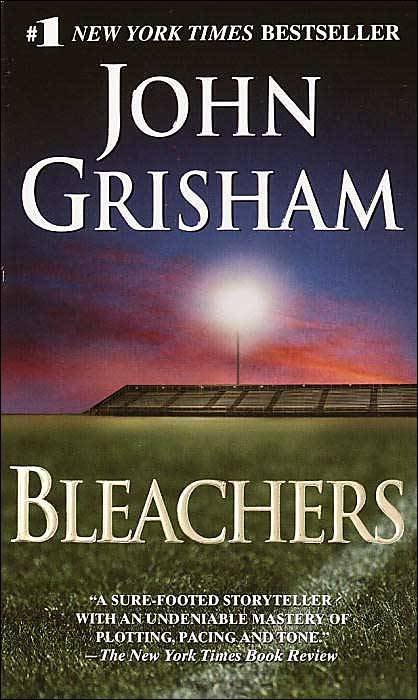
John Grisham has written
books outside his field of legal thrillers before. The first one I read
in 2011 was “Skipping Christmas” which they adapted into a movie some
years back. I wasn’t very pleased with the story and came away thinking
Grisham should stick to novels like “Runaway Jury” or “Innocent Man”.
But Grisham isn’t a bad writer himself and I had a copy of “Bleachers”
on my shelf from an impulse purchase at a second-hand store, so I
committed myself to engaging his tiny novella. Unlike “Skipping
Christmas”, Grisham explores much more personal themes concerning
forgiveness, the measure of greatness, the unfairness of life, and
finality of our choices.
Eddie Rake, the dying coach, for whom many
of his former players return to their hometown to pay their respects,
was something of a hard ass. They all hate Coach Rake at some point, but
come to grudgingly respect him for all he has taught them. One of his
players, Neely Creenshaw, harbours a secret about a violent altercation
between the coach and himself. After that fight, Neely has been bitter
and distant, and the vigil he gives his coach is also a vigil for the
man he used to be, and the man he could have become. Grisham works to
deconstruct the legend that is Eddie Rake through the collective
experiences of his players. Rake’s reputation of greatness is
undisputed, but like everyone else, he is just a flawed human being
prone to the same mistakes. The vigil his players hold for him
illustrate that despite his cruel regimes, gruff exterior, and rough
countenance, he has a man who loved his players but couldn’t show it;
adored his family, but dominated them, and loved to triumph, but
couldn’t fathom defeat.
Neely spends fifteen years drifting
through life in bitter stupor after he suffers a knee injury that ends
professional football career. His wife leaves him after two
miscarriages. But the shadow that hangs over his life is the
confrontation with Coach Rake in the locker room of their 1987
championship game. He never forgave the man until he returns to his
hometown for the first time in fifteen years to sit vigil for his coach.
Grisham paints a sombre man lost in his reverie, longing for the better
times after having fallen on hard ones. Neely’s air is permeated with a
sense of loss and grieving, both for his own soul and for his fallen
coach. He is man of deep regrets, for his lost love, his game, and his
coach.
No comments:
Post a Comment